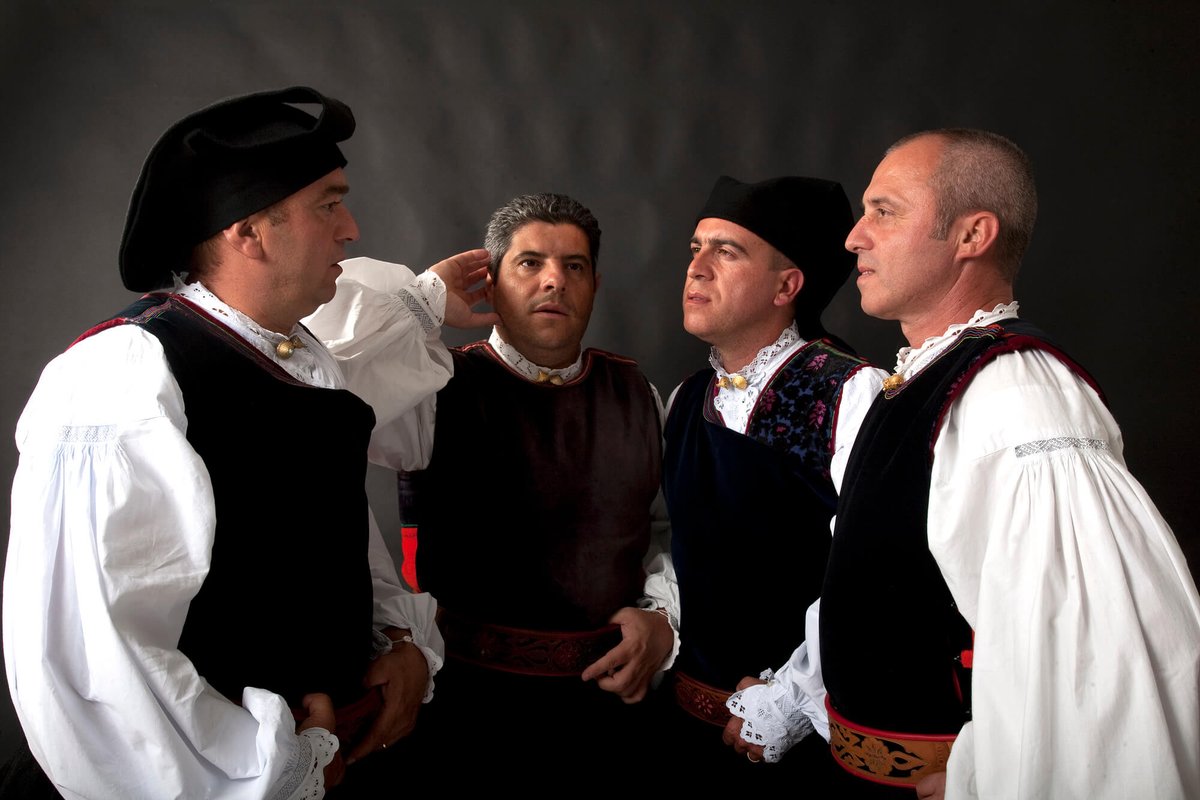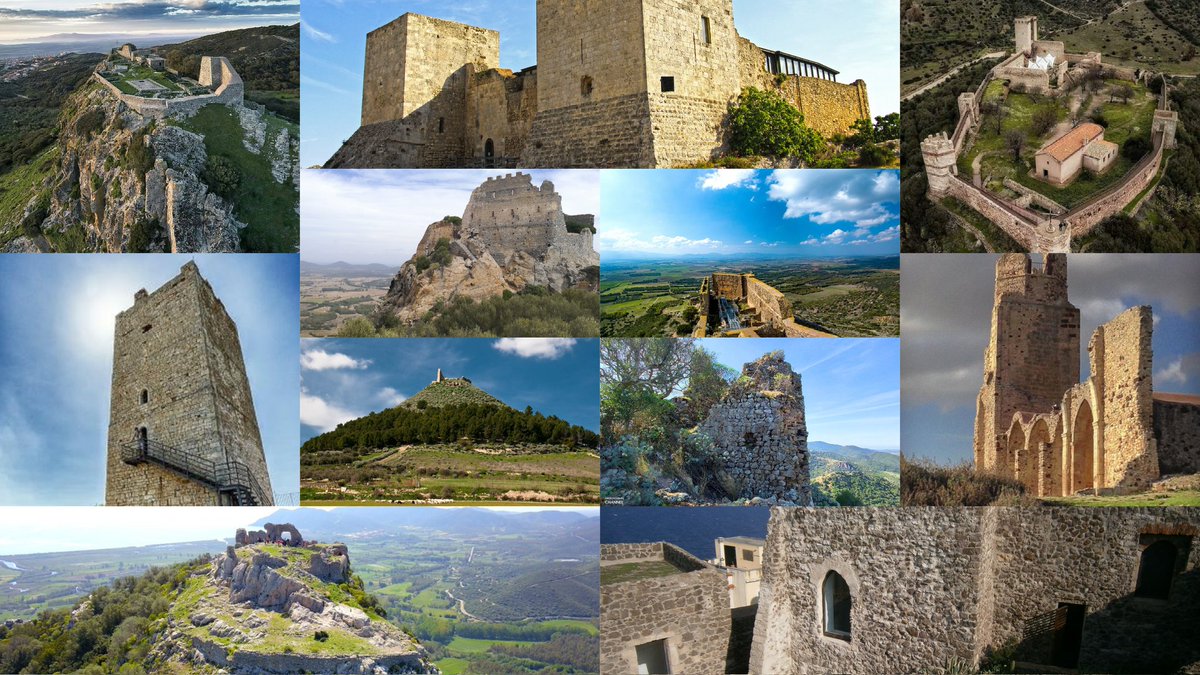**CANTU A TENORE**
Sardinian pastoral songs, UNESCO intangibile heritage since 2006.
📸 Tenores of Bitti
Sardinian pastoral songs, UNESCO intangibile heritage since 2006.
📸 Tenores of Bitti

Sardinia has a long poetic and chants tradition, linked to each other. Singing was considered a male talent, so that a typical saying told "women are born crying, men are born singing", even if we also had occurrences of women leading choirs, and women used- 

-to sing in their everyday activities.
The cantu a tenore is a traditional singing linked to pastoral life and requires a group of people. The group is called tenore, from which the chants take the name. The group is usually made up by four people, with one soloist ("sa boghe")-
The cantu a tenore is a traditional singing linked to pastoral life and requires a group of people. The group is called tenore, from which the chants take the name. The group is usually made up by four people, with one soloist ("sa boghe")-

-and three more people to make the choir. They are called su bassu, sa contra and sa mesu boghe, because they sing in three different tones. The soloist sings in Sardinian language, with usually romantic themes or text that refer to the traditional Sardinian poetry, while- 

-the choir sings unintelligible guttural sounds, which remind of the sounds made by shepherds to control their flocks. It is in fact thought this could be the origin of this type of singing.
It's not possible to pinpoint a date or origin of this singing because it goes far back-
It's not possible to pinpoint a date or origin of this singing because it goes far back-

-in time. The first written sources are of the beginning of the 19th century, and it was already considered very old.
The tenores could be accompanied by musical instruments, like piano accordions (since the second half of 19th century) or the traditional launeddas of the-
The tenores could be accompanied by musical instruments, like piano accordions (since the second half of 19th century) or the traditional launeddas of the-

-Campidano.
The cantu a tenore could also be used to accompany the traditional dances, like in this performance of the folk group of Monti (Gallura):
The cantu a tenore could also be used to accompany the traditional dances, like in this performance of the folk group of Monti (Gallura):
This is an example of a cantu a tenore, from Alà dei Sardi:
A variation of the cantu a tenore is the cantu a cuncordu, which lacks the typical guttural sounds, substituted with softer sounds. Su Cuncordu usually has religious themes, like in this performance of the Miserere from the Cuncordu of Cuglieri:
Sardinia also has a tradition of large choirs, close to opera singing. Some of the most famous groups are from Nuoro, all gathered in this performance of A Diosa:
• • •
Missing some Tweet in this thread? You can try to
force a refresh














